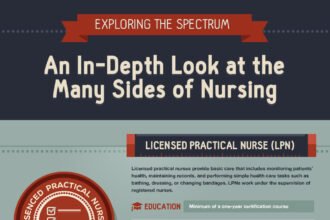A reporter who is new to the health care wars contacted me the other day. She already had a pretty good idea of the liberal point of view — expand government — and wanted the conservative viewpoint. She assumed that meant “privatization.” She asked several questions, such as:
What do you think privatization of the entire health care system would do to fix it? Why does this work better than the opposite, a universal system run by the government?
I’m afraid I disappointed her by responding with this:
A reporter who is new to the health care wars contacted me the other day. She already had a pretty good idea of the liberal point of view — expand government — and wanted the conservative viewpoint. She assumed that meant “privatization.” She asked several questions, such as:
What do you think privatization of the entire health care system would do to fix it? Why does this work better than the opposite, a universal system run by the government?
I’m afraid I disappointed her by responding with this:
Calling what I have been advocating “privatization” is too simplistic. That is not descriptive at all. Let me explain.
My contention is that the core problem in health care is third-party payment — having other people pay the bills on our behalf. It matters some (but not much) if that third-party payer (TPP) is public or private. In fact virtually all the “public” payers contract out to private insurers for the administration of the programs.
TPPs may be private insurers, employers, or government agencies. They all have the same insidious effects: (1.) They add administrative costs that take away from patient care. (2.) They substitute their judgment for ours even though they don’t know us and really don’t much care about OUR needs, values, priorities, resources, family structure, or emotional condition.
This is doubly ironic since every penny they spend on our healthcare comes from us. There is simply no other source. It is our money in the form of premiums, taxes, or lost wages. It is supposed to be spent for our benefit.
We have been trying to get this system of third-party payment to work for 50 years. Sometimes the government is dominant, other times, employers, other times private insurers. Many billions of dollars have been spent trying to tweak it — rate setting, managed care, contract negotiations, DRGs, universal health programs, Medicaid expansion, and on and on and on. None of it has worked. We have instead a system that is inefficient, bureaucratic, inconvenient, unaccountable, and waaaay too expensive.
The Affordable Care Act is just more of the same — maybe this time if we have this requirement and that mandate and these regulations we’ll be able to get everything to work out just right. It is a fantasy. Replacing HMOs with ACOs will do nothing to fix the system. Mandating that people must buy lousy insurance does not improve anything.
We need real reform. We now have an inkling of what WILL work in the form of “consumer driven health care.” HSAs are just a baby step in the right direction, but so far the evidence is overwhelming that putting the money in the hands of the consumer/patient creates the change we need. People get the services they want at a price they think provides value.
But the so-called “policy community” hates this idea because it disempowers them. Allowing people to control their own money means that policy makers lose control.
Hope this helps.
YIKES! She said, “This is an interesting option that I haven’t really heard!” And asked some follow-up questions centered around the idea that health insurance would be banished. She asked whether the government would be involved at all, how such an idea would hold down costs, and how the poor would fare.
I replied:
Well, not quite that, either.
Insurance is different than third-party payment. Insurance is a two-party contract, like your auto insurance. You pay the premium, and the insurer pays you when something bad happens. That is fine, but different people will choose different levels of coverage, again depending on their own circumstances. It would be there for the kinds of high cost conditions you cite.
Of course the government should be involved. It needs to regulate the insurance companies to make sure they will pay the promised benefits.
Government is also involved in setting tax policy. Current tax law gives an unlimited tax break to employer-sponsored plans, but none at all to people who buy their own coverage. This should be equalized.
Lower income people can be subsidized with vouchers. I would suggest a sliding scale voucher based on income. This would be another role for government.
On cost containment, consumer driven plans (like HSAs) are the only approach that has been proven to hold down costs. Researchers at the Rand Corporation found they lower costs by 30%.
But, yes, as much as possible there should be direct payment of services. This completely eliminates administrative waste for both payers and providers.
And, btw, Medicare should also be reformed to include HSAs. The Feds could continue to provide the back-up insurance, but Parts A and B would be merged into a single program with an across the board deductible with 100% coverage after that. The deductible would be set wherever the actuaries say is appropriate to keep in revenue neutral — probably in the $2,000 to $3,000 range. People would not have to buy Medigap coverage any longer.
Oy gavalt! It’s so confusing. Methinks she won’t have any more questions, at least not for me.









